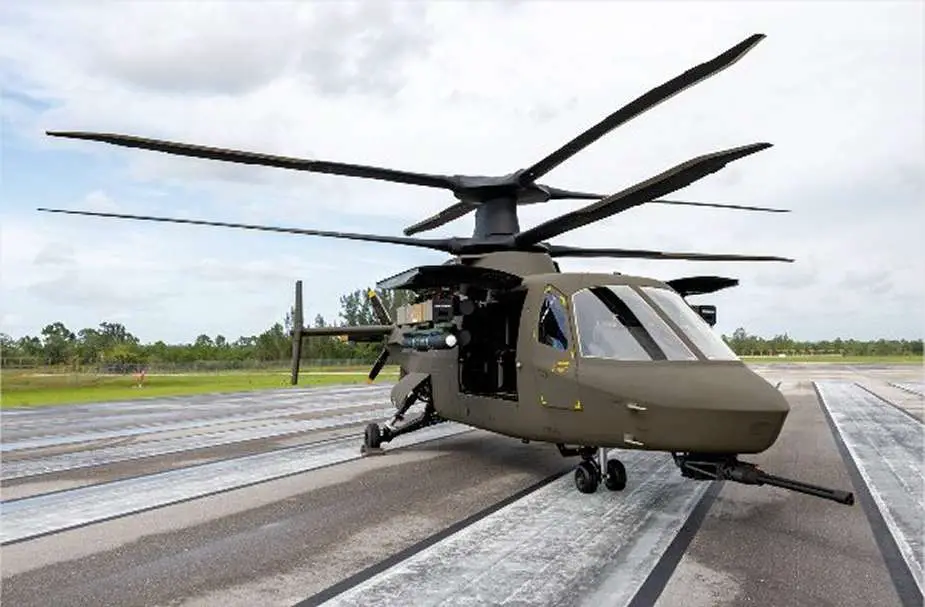Breaking news
US Army cancels further development of FARA Future Attack Reconnaissance Aircraft program.
The FARA program, short for Future Attack Reconnaissance Aircraft, has been abruptly terminated by the US Army, as reported by Antony Angrand in Air & Cosmos. This decision stems from the rapid evolution of battlefield technologies, which now offer more cost-effective and high-performing alternatives to manned systems.
Follow Air Recognition on Google News at this link
 Sikorsky Raider X Future Attack Reconnaissance Aircraft (FARA) Competitive Prototype in September 2023, a prototype that ill thus nt be developed further (Picture source: Sikorsky)
Sikorsky Raider X Future Attack Reconnaissance Aircraft (FARA) Competitive Prototype in September 2023, a prototype that ill thus nt be developed further (Picture source: Sikorsky)
FARA's demise follows a lineage of failed programs, including the Comanche and the Arapaho initiatives. This termination signifies the end of the US Army's quest for a next-generation reconnaissance aircraft, halting a potentially lucrative contract for Bell and Sikorsky. Remarkably, this marks the fourth attempt to replace the aging Bell Kiowa, with the OH-58 model retired in 2014, now halted mid-development.
The journey of disappointment began with the Light Helicopter program, resulting in the cancellation of the RAH-66 Comanche in 2004. Subsequently, the Armed Reconnaissance Helicopter program gave birth to the Bell ARH-70 Arapaho, only to be halted in 2006. The Armed Aerial Scout program, exploring off-the-shelf solutions, met a similar fate in 2013.
Initially boasting five competitors in 2019, the FARA program narrowed down to just two contenders by March 2020: Bell with the Bell 360 Invictus and Sikorsky with the Raider X. However, despite progressing to phase two of the competition, the final winner was never to be announced.
General Randy George, the US Army Chief of Staff, pointed to lessons learned from recent conflicts, notably in Ukraine, as pivotal in the decision-making process. He emphasized the changing landscape of aerial reconnaissance, with unmanned systems and space-based sensors offering greater ubiquity, autonomy, and cost-effectiveness than ever before.
The termination of the FARA program underscores the challenges faced by modern militaries in adapting to rapidly evolving technologies and the imperative to reassess traditional approaches in light of these advancements.


























